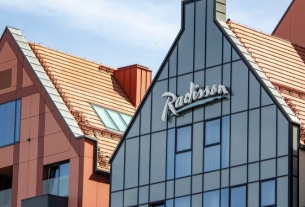Online travel-booking engines rarely change. So any wrinkle introduced by a company is bound to get a lot of close examination.
Witness the industry’s attention to Expedia Inc’s gradual debut of its Accelerator program, which allows hoteliers to — for a fee — bump up their visibility to a top page in a consumer’s search by city.
Accelerator is still in the process of rolling out, with the tool having become available for the majority of hoteliers in Q4 of 2015, said Amanda Graham, senior manager of industry relations at Expedia.
Adam Anderson, managing director of industry relations at Expedia, noted: “Hoteliers want more control over how they can draw visibility.”
Tnooz spoke with several hotel sector experts to find out what the significance of this functionality might be to the travel industry, some of whom declined to be quoted. The most common response was skepticism that this service would gain much traction.
“I don’t think the consumer’s going to notice and I wonder how many hoteliers are going to buy into this model,” said Greg Abbott, senior vice president of travel and hospitality at DataArt, a technology consulting and solution-design firm. Abbott clarified:
“Expedia and Priceline are now taking Google’s model and applying it to their own environment…. What it (also) reminds me of is all the old search engines. They used to populate based on paid advertising. Whoever paid the most got the highest ranking….
What happened to those models? They got killed by their own algorithm.”
Unlike the old Google model, paid-placement isn’t signaled in Expedia’s program. The company confirmed that visitors to the site won’t be showed any special messaging, a la “Promoted Hotel”, that might clue them into which hotels have sprung for this bid-for-placement option.
Expedia was eager to point out that a hotel cannot buy a premium spot. They must have earned it, which is something that should assure consumer confidence in the quality of the search rankings.
“There is no way a hotel (can go to the top) if its’ offer strength and quality score are low. If those are out of whack, involvement in the Accelerator program isn’t going to get them on page one,” said Anderson. “They can’t buy their way to the top. This is a small boost. The algorithm computes so it may bump them up ahead of their competitor.”
Factors include things like past customers’ feedback about their stay.
What’s important to know about Accelerator, experts said, is that there isn’t just a set cost: instead, hotels bid against each other for premier placement in search results. That makes things a bit unpredictable.
Expedia’s Graham said:
“Since market dynamics are constantly changing over time, and a number of factors influence sort order (primarily offer strength and quality score), we can’t guarantee a specific boost in sort position from using Accelerator.”
“We encourage our partners to use the Accelerator preview tool on our partner site to see their potential sort rank based on their selected additional margin (which is capped), destination, travel dates, and point of sale.”
Anderson explains it like this. Three tools already drive a hotel’s sort algorithm on Expedia: offer strength (quality of the deal and the number of rooms already booked, quality score (driven by the number of refunds) and compensation (this refers to the booking compensation and is the least important, he said).
“From a hotelier’s perspective, they care very deeply about their positioning in the marketplace,” said Anderson. “A hotel moving from the third page to the second page could have significant impact on their business.”
Abbott at DataArt conceded that top results are what gain bookings. “Nobody goes down to page seven when you’re looking for Berlin.” But he noted that hotels have to participate for it to work.
“We have to look at it from the bigger picture here,” said Max Starkov, president and CEO of HeBS Digital, a digital-marketing partner within the hospitality industry. “There is an industry pushback to lower commissions.”
Hotels pay as much as 25% commission to be on sites like Expedia, he said, while bigger brands and agencies such as American Express and Carlson Wagonlit Travel are able to negotiate even lower.
One industry consultant we spoke to thought that a lack of traction would keep the additional payment needed to drive higher placement to about a couple of percentage points, against the company’s hopes. (Bidding is capped at a maximum of 15%.)
As expected, Expedia didn’t reveal the dynamic program’s cost structure. But the company’s CEO was bullish on the program during TV interviews.
Would Accelerator drive hotels away from online-booking sites?
“Just imagine, for an independent hotel, you are already lost in the shuffle,” said Starkov, suggesting that these hotels have two options: to either take their money and leave the booking sites altogether or tack on even more fees, like with the Accelerator program. He added:
“Maybe you will get more business from Expedia, but at what cost? It’s an avenue for Expedia to make more money, period. It’s a very selfish one-sided program, period. They will not be listing the better hotels on top. From a consumer’s perspective, we’ll have hotels that do not deserve your attention and will be pushed in your face.”
Read original article




